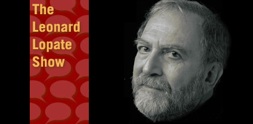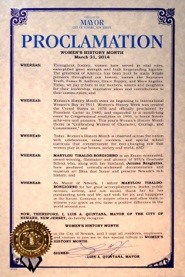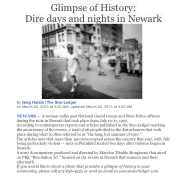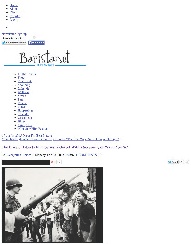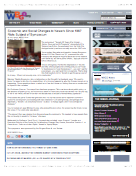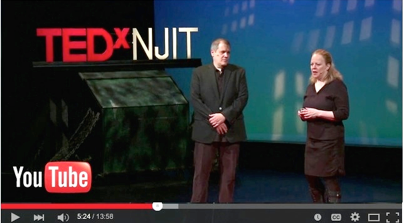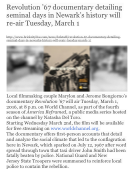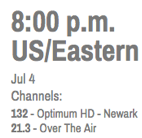


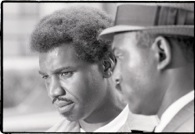
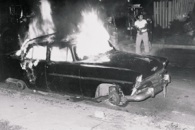
Donated by Corbis-Bettmann
Revolution ’67 Press/Podcasts
Black urban rebellions of the 1960s are often relegated to the footnotes of history, but they were milestones in America's race struggles. A new POV film, "Revolution '67," looks at the six-day Newark, N.J. outbreak in mid-July of 1967 that led to 26 dead people, 725 injured, and close to 1,500 arrested. Leonard talks to filmmakers Marylou Tibaldo-Bongiorno and Jerome Bongiorno, and former SDC/NCUP activist Carol Glassman.
Guests: Jerome Bongiorno, Carol Glassman and Marylou Tibaldo-Bongiorno
A new film airs tonight on PBS which looks back at the summer of 1967 in Newark, New Jersey when six days of rioting left, 23 people dead and more than 700 people injured. Our guests are Marylou Tibaldo-Bongiorno, co-director of the film, “Revolution ’67″ and Rutgers University historian Dr. Clement Price.





The Newark Riots of 1967 were among the deadliest racial disturbances per capita in recent U.S. history. Join Marylou Tibaldo-Bongiorno, Producer/Director of “Revolution ’67,” as she talks with Steve about this tumultuous time in Newark. “Revolution ’67” paints the picture through use of news footage mixed in with first-hand recollections of journalists, historians and political figures who witnessed the events. For more information;http://www.pbs.org/pov/pov2007/revolution67/preview.html
Jun 29, 2007 edition of the WBGO Journal
REVOLUTION ’67
Doug Doyle talks with the film makers of the new documentary, Revolution ’67, looking back at the Newark riots.
Aug 15, 2008 edition of the WBGO Journal
A NATIONAL DIALOGUE ON NEWARK, 1967
Doug Doyle talks with April Yvonne Garrett of Civic Frame. The group is taking the documentary, Revolution ’67 , about the Newark riots around the country to encourage dialogue on what happened and what’s changed since then.
Revolution ’67 is a case study of one city, Newark, New Jersey, but the events that transpired in Newark in July 1967 are so skillfully placed into their wider-socio-political milieu that the film succeeds in offering an explanation for the urban uprisings and riots that occurred in over 500 cities during the 1960s, as well as the racial discord and tensions evident to this day. It provides a succinct and fascinating history lesson, the nuances of which remain unknown to many students, even though topics such as slavery and the American Civil Rights Movement are widely addressed in high school curricula.
Mirelle Cohen, Olympic College, Teaching Sociology 37.2 (2009): 224-225
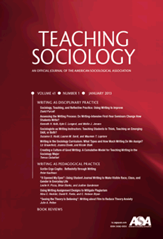

Host Bob Mann talks with Dr. Clement Price and filmmakers Marylou Tibaldo-Bongiorno and Jerome Bongiorno about their film Revolution ’67, which examines the historical and sociological causes and effects of the 1967 Newark “riots.”

Revolution ’67 on


Marylou and Jerome receive
The New Jersey Historical Commission
Award of Recognition
for Outstanding Service
to Public Knowledge and
Preservation of the
History of New Jersey
2013
Filmmakers Marylou and Jerome Bongiorno are recognized for their significant role in producing public history documentaries that engage the public in critical thinking about tumultuous times in New Jersey’s past. The Bongiornos’ trilogy of films on urban America encourage viewers to consider the importance of studying events in state history that are linked to the nation’s social and political history. In Revolution ’67, which analyzes the outbreak of the Newark Riots, the filmmakers consider the event a cultural and social revolution demonstrative of a massive decline in civic order. The Rule explores the success of Newark Abbey and its school, St. Benedict’s Prep, as a model for inner cities that provides valuable insights into American religious, immigration, educational, and metropolitan history. The final film in the trilogy, [upcoming] Rust, examines the decline of America's industrial urban centers. These films have been widely shown and continue to foster dialogue about social, ethnic, and economic tensions in our state’s and nation’s history.






























READ: Marylou & Jerome’s Letter to Editor

Reduce Poverty in Inner Cities:
Marylou & Jerome Bongiorno at TEDxNJIT


ECONOMIC AND SOCIAL CHANGES TO NEWARK SINCE 1967 RIOTS SUBJECT OF SYMPOSIUM
By John Abbott, WBGO News Newark. April 11, 2013
Documentary filmmaker and panelist Jerome Bongiorno, whose 2007 film “Revolution ’67” examined the riots incited by the alleged killing of a Black taxi driver named John Smith by two white police officers, says job creation is the critical issue.
"It’s an emergency. It’s like the Depression of the 20s and 30s, where people are suffering and you can’t wait for businesses to move themselves in…you can’t wait for a developer, you can’t wait for store owners. That’s what City Hall needs to do for Newark to get the people out of its misery: 28 per cent poverty rate—is to create jobs."


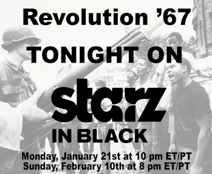

The insightful "Revolution '67" exposes the flip side to the "Summer of Love": race riots in several American cities, including Detroit and, as spotlighted here, Newark, N.J. The six-day riot began on July 12, sparked by a rumor that a black taxi driver died while in police custody, but was fueled by endemic poverty, racism and political corruption. Commenting: poet Amiri Baraka; Tom Hayden, who worked as a community organizer in the city at the time; and former Newark mayor Sharpe James



"Newark is in worse shape now than in 1967 considering that the poverty rate in 1967 was 18 percent and today it’s nearly a third of our city," said Marylou Bongiorno, a Newark resident who together with her husband Jerome Bongiorno made the critically-acclaimed documentary Revolution ’67.
"If we don’t reduce the poverty in Newark, no amount of building in the downtown or extra police is going to improve the city,” she said. “And if Ferguson and Baltimore can erupt into riots, then Newark, with a far higher poverty rate, can easily do the same."




